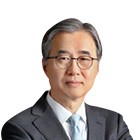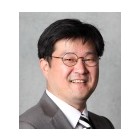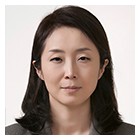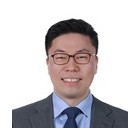Video
Events
Recent Events
Science and Technology to Prevent and Respond to CBRN Disasters: U.S. and South Korean Perspectives
- Expert
- Choi Kang
- Hit
- 645
- Date
- 14-01-22 15:16
















Presentations were given by numerous S&T and CBRN experts including Craig Vanderwagen, former Assistant Secretary for Preparedness and Response at the U.S. Department of Health and Human Services, Richard T. Cupitt, U.S. UNSCR 1540 Coordinator at the U.S. Department of State, Peter Jutro, Deputy Director for Science and Policy at the U.S. Environmental Protection Agency, Ken Buesseler, Senior Scientist at the Woods Hole Oceanographic Institution, and Whang Jooho, professor at Kyung Hee University.
Panels composed of government officials and academic scholars discussed the roles of Science & Technology, as a part of national and international security, in preventing and remediating CBRN disasters. The speakers analyzed major CBRN incident experiences and the follow-ups. They also debated how S&T cooperation can be achieved, with a special focus on international cooperation on the basis of UN Security Council resolution 1540. Participants emphasized the importance of spreading security awareness, education to the students at their early stage of career as a scientist, and strategic communication among the S&T community as well as with the general public and policy makers.
Finally, in a special session on the Fukushima Disaster, the participants dealt with the environmental effects due to the accident and made recommendations to mitigate them. Although there were agreements and disagreements on the actual effect of the accident and the application of standards, there was a consensus among the participants that measures taken by the government should be data-based and transparent in order to ensure public trust, in case of a similar disaster in the future.
Date/Time: January 22-23, 2014/ (Day 1) 10:00 AM - 5:00 PM, (Day 2) 9:00 - 10:30 AM
Place: Auditorium (2F), AAAS, Washington D.C.
Participants
*in alphabetical order
Kavita Berger Associate Director, Center for Science, Technology, and Security Policy, AAAS
Ken Buesseler Senior Scientist, Woods Hole Oceanographic Institution
CHO Kun-Woo Principal Resercher, Korea Institute of Nuclear Safety
CHOI Kang Vice President for Research, The Asan Institute for Policy Studies
Richard Cupitt U.S. UNSCR 1540 Coordinator, U.S. Department of State
Diane DiEuliis Deputy Direct for Policy, ASPR Office, U.S. Department of Health and Human Services
GO Myong-Hyun Director, Center for Risk, Information, and Social Policy, The Asan Institute for Policy Studies
Tom Inglesby CEO and Director, UPMC Center for Health and Security
Peter Jutro Deputy Director for Science and Policy, U.S. Environment Protection Agency
SangDon Lee Research Environmental Scientist, U.S. Environment Protection Agency
LIM Sang-beom Counsellor, Permanent Mission of the Republic of Korea to the UN, Ministry of Foreign Affairs of the Republic of Korea
Philip X. Navin Jr. Director, Division of Emergency Operations, CPC
Norman P. Neureiter Director, Center for Science, Technology, and Security Policy, AAAS
Kenneth A. Oye Director, Program on Emerging Technologies, MIT
PARK Jiyoung Director, Science and Technology Policy Center, The Asan Institute for Policy Studies
SHIN Chang-Hoon Director, Nuclear Policy and Technology Center, The Asan Institute for Policy Studies
Craig Vanderwagen Former Assistant Secretary for Preparedness and Response at the U.S. Department of Health and Human Services
WHANG Jooho Professor, Department of Nuclear Engineering, Kyung Hee University

Choi Kang
President
Dr. CHOI Kang is the President at the Asan Institute for Policy Studies. Previously, he was the dean of Planning and Assessment at the Korean National Diplomatic Academy. In 2012, Dr. Choi served as the president at the Institute of Foreign Affairs and National Security (IFANS). He was also a professor and director general for American Studies at IFANS, a research fellow at the Korea Institute for Defense Analyses, and senior director for Policy Planning and Coordination on the National Security Council Secretariat. He holds several advisory board memberships including: the Committee on Foreign Affairs, Trade, and Unification of the National Assembly; Ministry of National Defense; Ministry of Unification; Air Force Development Committee; and the National Unification Advisory Council. Dr. Choi was also a South Korean delegate to the Four-Party Talks. He writes extensively on the ROK-US alliance, North Korean military affairs, inter-Korean relations, crisis management, and multilateral security cooperation. Dr. Choi received his B.A. from Kyunghee University, M.A. from the University of Wisconsin-Madison, and his Ph.D. in political science from Ohio State University.
view more
Shin Chang-Hoon
Research Fellow
Dr. SHIN Chang-Hoon is a research fellow in the Nuclear Policy and Technology Program in the Center for Global Governance at the Asan Institute for Policy Studies. Previously, Dr. Shin taught public international law, international organizations, international economic law and the law of the sea at Seoul National University and Myongji University. Dr. Shin has been an active participant in international conferences held at the International Maritime Organization and is a member of the Compliance Group established by the 1996 London Protocol to the Convention on the Prevention of Marine Pollution by Dumping of Wastes and Other Matter. Dr. Shin’s research focuses on dispute settlement, the law of the sea, international environmental law, international humanitarian law and the study of the nonproliferation regime. He received a B.S. and an L.L.M from Seoul National University, and a D.Phil. from the University of Oxford.

Park Jiyoung
Senior Fellow
Dr. PARK Jiyoung is a senior fellow of the Center for Science and Technology Policy at the Asan Institute for Policy Studies. Previously, she was a research fellow and managing director of the R&D Feasibility Analysis Center at the Korea Institute of S&T Evaluation and Planning (KISTEP) and also a visiting research scientist at the Center for Innovation at the University of Maryland. Dr. Park’s research focuses on the study of policy and management issues for nuclear technology, R&D for global green growth policies, economic analysis of R&D programs, and developing support for the formulation of evidence-based policies in the science and technology fields. Her recent publications include, “Assessment System for Feasibility Analysis of National R&D Programs: The case of Korea,” International Journal of Innovation and Technology Management (2011). Dr. Park received her B.S. and M.S. in nuclear engineering and an M.S. in public policy from Seoul National University and her Ph.D. in nuclear engineering and radiological sciences from the University of Michigan.

Go Myong-Hyun
Senior Fellow
Dr. GO Myong-Hyun is a senior research fellow at the Asan Institute for Policy Studies. Previously, Dr. Go was a postdoctoral researcher at the University of California, Los Angeles, Neuropsychiatry Institute. His research applies quantitative perspectives to traditional and non-traditional security issues, with special focus on North Korea, sanctions enforcement, and security and strategic dimensions of technology. Dr. Go’s latest publications include “Not Under Pressure: How Pressure Leaked of North Korea Sanctions” (2020) and “The Rise of Phantom Traders: Russian Oil Exports to North Korea” (2018). Dr. Go received a B.A. in Economics and an M.A. in Statistics from Columbia University in the City of New York, and the Ph.D. in policy analysis from the Pardee RAND Graduate School in Santa Monica, California. He was a Munich Young Leader of the Munich Security Conference 2015, and is currently a member of the Advisory Committee of the ROK Ministry of National Defense, a Senior Adjunct Fellow at the Center for a New American Security (CNAS), and an Associate Fellow at the Royal United Services Institute (RUSI).



